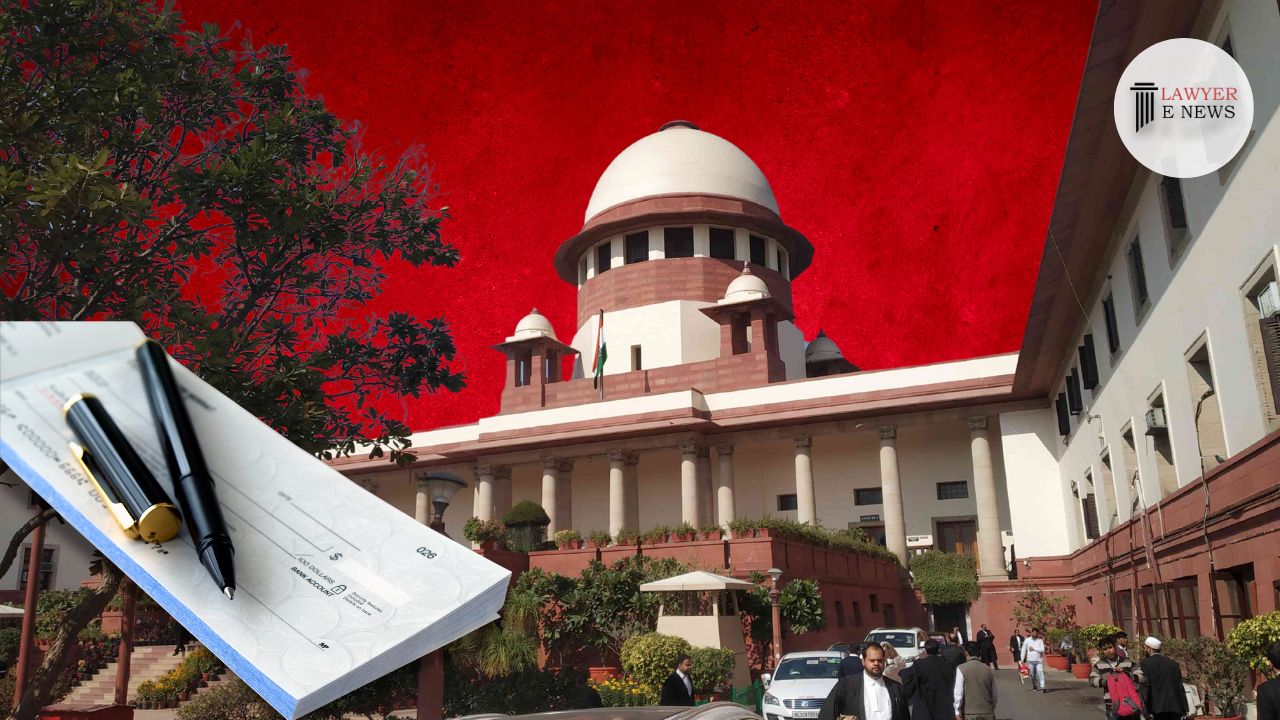-
by sayum
14 February 2026 2:22 PM



The Supreme Court of India has upheld the dismissal of a writ petition challenging the portrayal of persons with disabilities in the film "Aankh Micholi." The bench, led by Chief Justice Dr. Dhananjaya Y Chandrachud, affirmed the High Court's decision, emphasizing the delicate balance between freedom of expression and the need to protect the dignity of marginalized communities. The judgment highlighted the role of the Central Board of Film Certification (CBFC) and stressed the importance of sensitive and accurate representation in medi
Nipun Malhotra, the appellant, is the founder of an organization advocating for disability rights and awareness. Malhotra, who has arthrogryposis, raised objections to the film's trailer, claiming it derogatorily portrayed persons with disabilities. Despite his objections, the film was certified for unrestricted public exhibition by the CBFC and subsequently released. The appellant sought the inclusion of disability experts in the CBFC, punitive damages, and a public apology from the filmmaker
The court examined the Cinematograph Act, 1952, and the Rights of Persons with Disabilities (RPwD) Act, 2016, within the broader context of freedom of expression under Article 19(1)(a) of the Constitution. It reiterated that while the Cinematograph Act allows for reasonable restrictions on free speech, these must be narrowly construed and necessary.
The Supreme Court noted that the CBFC, an expert body, is tasked with ensuring films comply with the guidelines, including those pertaining to the portrayal of persons with disabilities. The court underscored the importance of the CBFC's certification process and its presumption of compliance with legal and societal standards.
The judgment highlighted the critical role of the CBFC and the significance of its expert opinions. It affirmed the CBFC’s certification of the film, stating that judicial intervention should be minimal unless there is a clear violation of statutory guidelines. The court observed that while creative freedom is paramount, it must not stereotype or denigrate marginalized communities. The inclusion of disclaimers and the filmmakers' intent to depict resilience were key factors in upholding the film's certification.
The Supreme Court’s reasoning hinged on maintaining a balance between artistic expression and the rights of persons with disabilities. It reiterated that the portrayal of social issues in films should be judged by the overall message rather than isolated scenes. The court stressed that stereotypical depictions should be avoided unless they serve a greater narrative purpose that aligns with social justice and empowerment.
Chief Justice Chandrachud remarked, “The freedom under Article 19(1)(a) includes the right to creative expression. However, this freedom cannot lampoon, stereotype, misrepresent, or disparage those already marginalized. There must be a balance where the depiction of any community, including persons with disabilities, must be dignified and respectful.”
The Supreme Court’s dismissal of the appeal underscores the judiciary’s commitment to balancing freedom of expression with the protection of marginalized communities' rights. The judgment reaffirms the importance of the CBFC’s role in film certification and the necessity for films to adhere to sensitive portrayals of all communities. This decision sets a significant precedent for future cases involving the portrayal of disabilities in media, reinforcing the principles of dignity and non-discrimination.
Date of Decision: July 08, 2024
Nipun Malhotra vs. Sony Pictures Films India Private Limited & Ors
